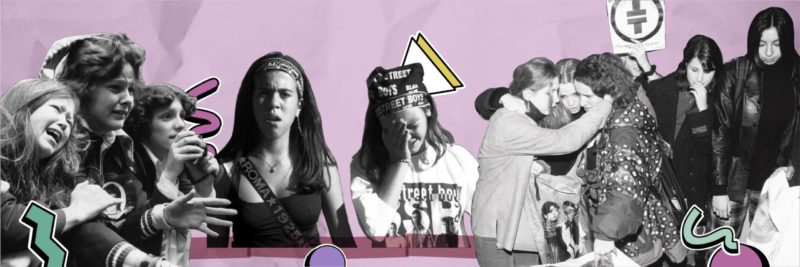
When Boybanders Fall Off Their Pedestals
As a fangirl, realising that your idols are not saints but humans who make mistakes, is part of growing up. But what do you do when your fave turns out to hold views that are diametrically opposed to your own values and beliefs?
In the past year, as if we didn’t already have enough to deal with, a number of stories came out on (former) boy band members that have divided and sometimes shocked fandoms. It was revealed that Zac from Hanson had been reposting racist, homophobic, sexist pro-gun memes on Pinterest. Brian from the Backstreet Boys joined Parler, a platform predominantly used by alt-right supporters, shortly after the attack on the Capitol. In the UK, Howard from Take That received backlash for being critical of mask-wearing and reposting anti-vax content on Instagram. And most recently, Justin Timberlake was accused of repeatedly profiting from systemic misogyny and racism during his career.
How do we as fans deal with these stories and revelations?
Imagine you’ve been supporting someone for half your life, thought the world of them, loved their music, made countless happy memories — and all of a sudden they turn out to hold views you strongly oppose, or they make mistakes that are too big to forgive. This can make it impossible to keep enjoying their music, or to support them wholeheartedly. Sometimes there is no other option then to stop being a fan, which can be utterly heartbreaking.
And then there is the impact these issues have on fandoms as a whole. Fans can grow fiercely divided on whether to keep supporting the artist or not, which reflects the huge division we’ve recently seen in larger society on issues like the US elections, Brexit, BLM and the pandemic.
I think ultimately the way a fangirl deals with a controversy around her idol depends on the nature and severity of what she finds out, on how the artist responds to and learns from it, and on her own very personal feelings and opinions.
*
Fangirls are experts on their favourite artist or band. They have been closely following them for years or even decades, have read every quote and seen every interview. They can understand contexts and spot inconsistencies better than any journalist or commentator. Contrary to popular belief, most fangirls recognise very well when their fave is giving media-trained answers or avoiding difficult questions. They see their less admirable traits for what they are.
Yes, some fans take backlash against their idols personally, and seem determined to stand by them until the bitter end — no matter what the issue is. When fans categorically reject any criticism of an artist and refuse to see that there could ever be anything wrong with them, that’s a problem. When someone in the public eye appears to hold objectionable views, it should always be acknowledged and discussed. Clearly, blindly defending your idol is not the way to go.
But there is something to say for the more nuanced view of ‘the artist as a person’ that fangirls offer. In these times of Cancel Culture, it’s very easy to just watch a public figure from afar, forget that they are human and dismiss them as bad or wrong. And, people love to hate on boy band members, especially when they are super successful. Many gloat in being able to say: “See, I told you it was stupid to like that boyband!”
Fangirls are probably less likely than the average person to judge an artist harshly, and I don’t think that’s such a bad thing. Their contribution to the discussions should be heard and taken seriously.
*
I think most of our favourite artists have made some questionable decisions in their lives. I’m thinking of things like adultery, substance abuse, or just any disrespectful behaviour. Making choices that you later come to regret is human, and most people apologise to those they’ve hurt and try to better themselves. I think a very interesting part of following someone for a long time is actually watching them grow up and deal with their mistakes. In the best case, it can even be inspiring to watch your idol evolve into a better person as they get older.
But there’s a difference between someone’s bad choices or character flaws, and the core values that they hold. It’s one thing to do questionable things and afterwards agree that it was wrong, but quite another to stand by your intolerant or close-minded views. Though it probably shouldn’t be that way, celebrities’ words and actions do contribute to our cultures and influence our societies. That means they have a responsibility to think twice about what they put out into the world and the content they share with their audience.
If your idol continues to share views that you strongly disagree with and you feel are not contributing to a better society, you have every right to let them go. As painful as it may be.
Art, words and design by Annemarie Schumacher © 2020-2021


0 Comments